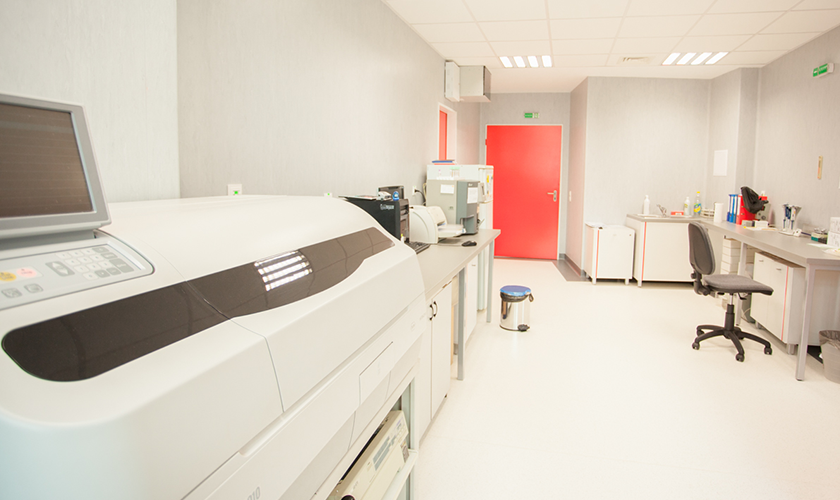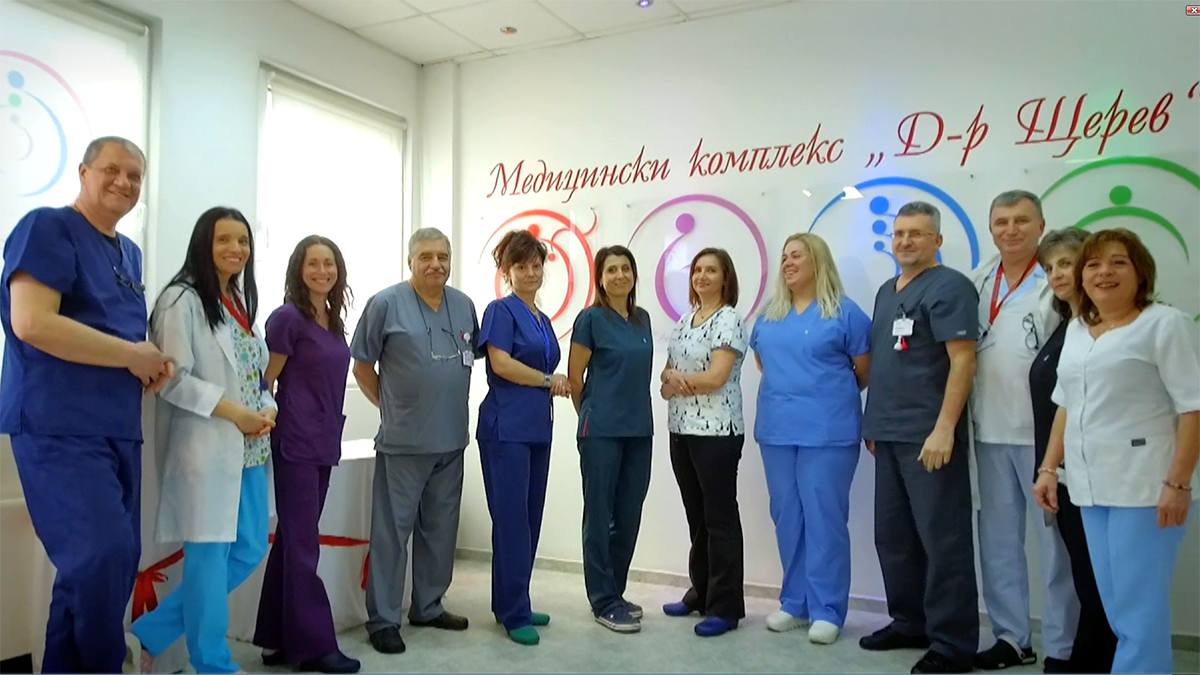
Hormonal testing - accents
- Hormonal testing is critical for taking further steps in infertility treatment.
- Women are tested between third and fifth day of the menstrual cycle for their basal hormones - LH, FSH, Estradiol, Prolactin; after ovulation (between 20th and 24th day of the period) is time for testing the Progesterone.
- There is no need for preliminary booking an appointment to test your blood hormone levels in Dr. Shterev Hospital laboratory.
Hormonal testing
What is hormonal testing?
Different parts of the body produce women sex hormones (FSH, LH, Estradiol, Progesterone, Prolactin, etc.): brain, adrenal glands, ovaries, placenta. They should be in exact amounts in woman’s different life periods - different age, a period of the menstrual cycle, pregnancy. The hormone testing is critical for taking further steps in infertility treatment.
Women are tested between third and fifth day of the menstrual cycle for their basal hormones - LH, FSH, Estradiol, Prolactin; after ovulation (between 20th and 24th day of the period) is time for testing the Progesterone.
- FSH (Follicle-Stimulating Hormone): Produced by the pituitary gland and tested at the beginning of the menstrual cycle (2nd-5th day). Its level shows a woman’s ovarian reserve and possible reaction to Controlled Ovarian Hyperstimulation (COH).
- LH (Luteinizing Hormone): It is related to ovulation induction (the rupture of the dominant follicle and oocyte release). The highest level is observed right before the ovulation. When tested at the beginning of the menstrual cycle, LH is a reference to the ovarian reserve of the patient.
- Estradiol: This is the primary estrogen hormone in a woman’s body, usually tested at the beginning of the menstrual cycle. Estrogen hormones are responsible for tissue growth and the proliferation of the cells in specific body areas. During an IVF procedure, Estradiol is tested to determine the ovarian response to COH.
- Progesterone: It is responsible for the preparation of the endometrium and the embryo implantation. This hormone is tested in the second phase of the menstrual cycle (19-23 day) and mainly in women undergoing ovulation tracking.
- Prolactin: It is produced by the adenohypophysis (anterior pituitary gland). Its primary purpose is connected with the lactation, which process also includes estrogens, progesterone, insulin, some adrenal hormones. Prolactin is tested in cases of infertility, menstrual and ovulation disorders, amenorrhea, suppressed ovulation, galactorrhea (milk-like secretion from the breasts). These hormone levels are influenced by stress, heavy physical work, provocation of breasts and nipples, sexual contacts, increase protein intake. Tested should be done with the exclusion of these factors.
- Anti-Mullerian Hormone (AMH): It is produced by the small granulosa cells of the growing follicles. Its levels are constant and do not depend on the phase of the menstrual cycle. Even though their good predictivity, AMH levels are not the only marker for determination of the ovarian reserve. This determination usually includes an ultrasound examination for counting the antral follicles, and also FSH testing.
Inhibin B: It is produced by the granulosa cells of the antral follicles. The decrease in its level is connected with the woman’s advanced reproductive age.
Do I need to book an appointment?
There is no need for preliminary booking of appointment for hormonal testing.
Get an online access code
Dear patients,
Please, after a payment in our hospital, ask at the payment department of Dr. Shterev Hospital for the receipt of your personal identification code. It is provided ONLY after completing the declaration - INFORMED CONSENT at the hospital registry.
We will ask you for your code for legitimacy in obtaining and commenting finished results, as well as for all references to performed medical care. If you do not provide us with your identification code, we cannot verify your identity. Thus we are not allowed to provide you with information via telephone or email.
Please note that the rules of the new data protection regulation do not allow medical records to be sent via email. Documents may need to be obtained remotely by courier, and a return receipt is required. The application for courier documents is made after filling in the "Application" in the hospital after legitimation.
These steps are for the protection of your data, and are implemented in terms of your interest.
If you are not provided with a personal identification code, please TELL US TIMELY IN THE HOSPITAL by contacting our team at the Information Department. A personal identification code CANNOT BE SUBMITTED TO YOU LATER THAN YOUR PHONE OR EMAIL.
You can read more information about protecting your data and getting completed examination results HERE.
Since April 16, 2019, an alternative method of PIN works as an additional legitimation. This code guarantees the security of personal data and patient secrecy.
On a subsequent visit to the Dr. Shterev Hospital, it is advisable to answer a secret question. The secret question, along with your personal identification code, serve to legitimize your communication with hospital representatives over the phone and online. In addition to this secret question about legitimation, operators will ask you additional questions related to your doctor's appointment and recent hospital visits, as well as the nature of the medical services provided. This way, you will be able to get information about finished lab results or feedback from your doctor for research and treatment.
The secret question and the subsequent communication questions are only used as an alternative method of legitimation in cases when the patient has changed his or her original PIN. The PIN is used to further secure online access to medical research. When a patient refuses to provide his or her new password, a secret question is used. It is also used when a patient has paid for medical services with a bank transfer or online and has not received the PIN code personally at the hospital cashier's desk. Changing the answer to a secret question or information about it just takes place after legitimation.
We ask all patients not to provide their individual PIN and the answer to the secret question stated at the hospital to third parties. This is the only way to make sure that you have made every effort to keep your personal information and patient confidentiality protected.
The new rules on personal data protection and patient secrecy at the Dr. Shterev Hospital are in line with the security standards put in place after the entry into force of the European Union Personal Data Protection Regulation of May 25 2018.
Special fertility tests - contact us
Meet the reproductive specialists from Dr. Shterev Hospital who help every day their patients in the struggle for a baby.
Book your appointment with a reproductive specialist via a phone call to 02 920 0901 or through our digital communication channels - website, Viber, Facebook Messenger.
Video: Our reproductive specialists
They are behind you on the thought path to the dreamed baby. They struggle tirelessly to create a new life. The bring joy to our patients. They are our Ob/Gyn and reproductive specialists. Watch the exclusive video created about them with gratitude for their dedicated work and noble mission to help the couples to feel the greatest family joy - the sound of baby’s laughter in their home.
Special fertility tests - resume
Dr. Shterev Hospital team has more than 30 years of experience in the field of assisted reproductive techniques. For that period, the specialists managed to help thousands of women and couples to feel the greater joy - the happy laughter of their one baby. More than 10 000 are the children born after different assisted reproductive techniques and modern laboratory methods for infertility treatment, applied by all the gynecologists, embryologists, and biologists in Dr. Shterev Hospital.
 Медицински комплекс „Д-р Щерев”
Медицински комплекс „Д-р Щерев” 